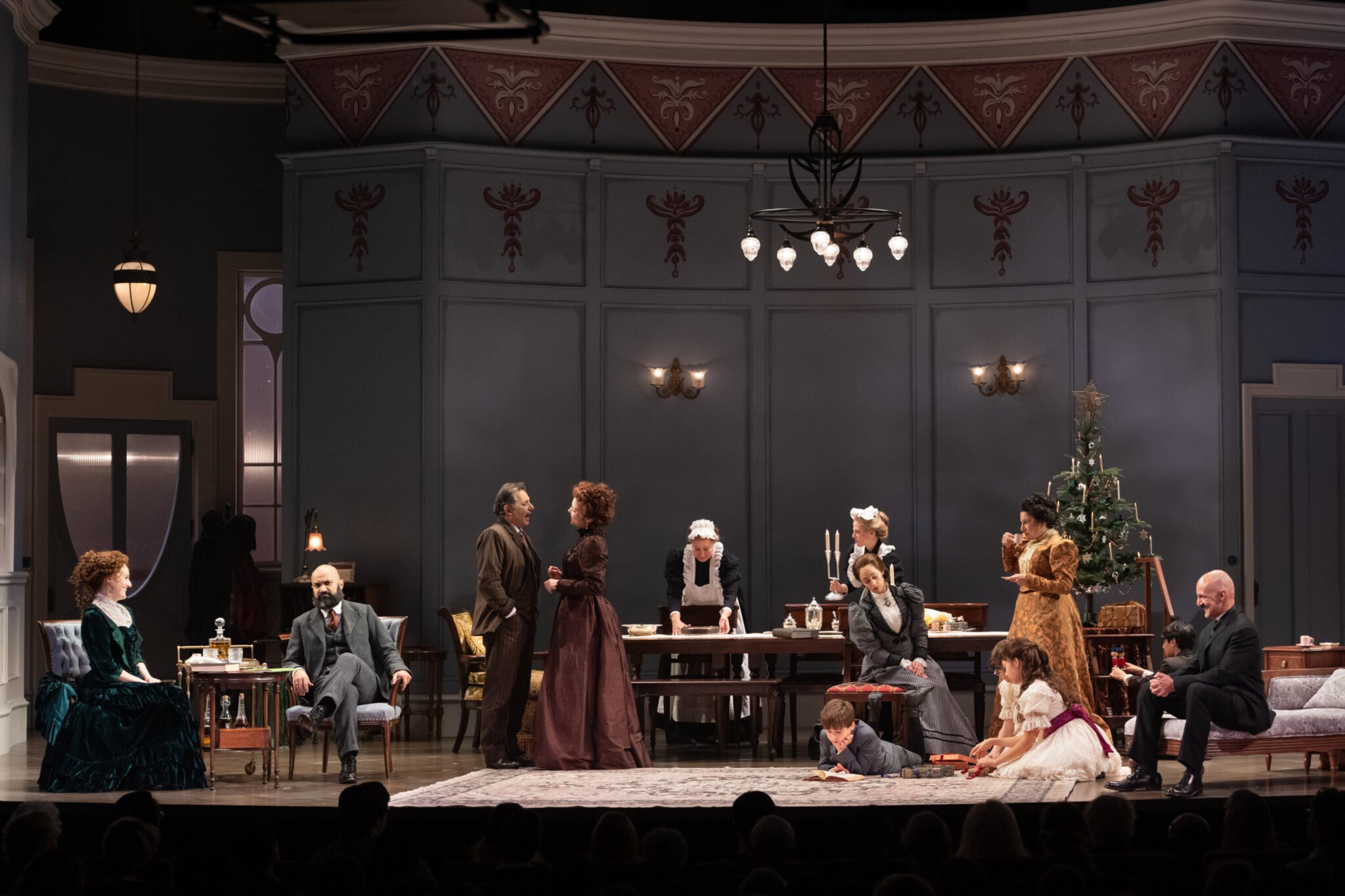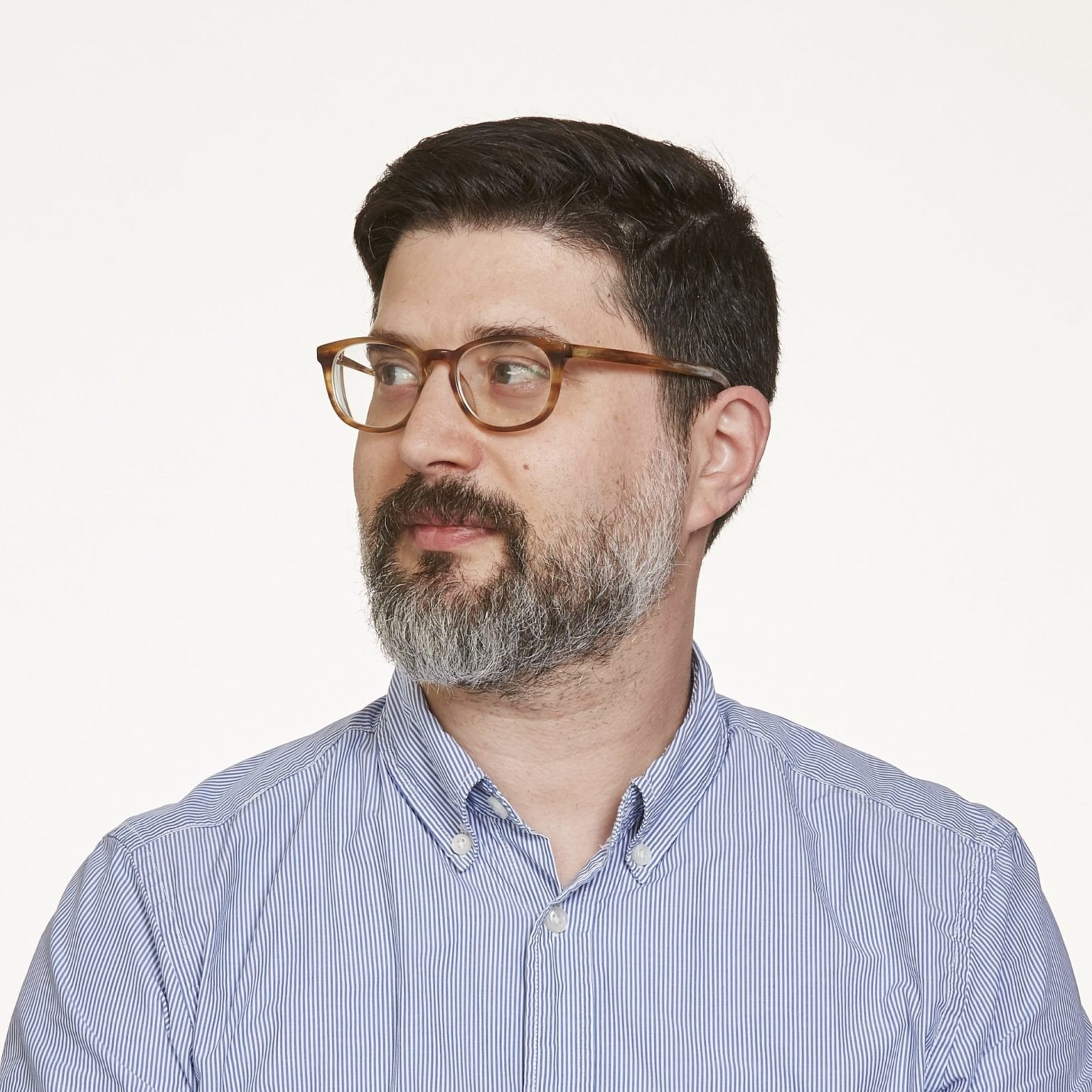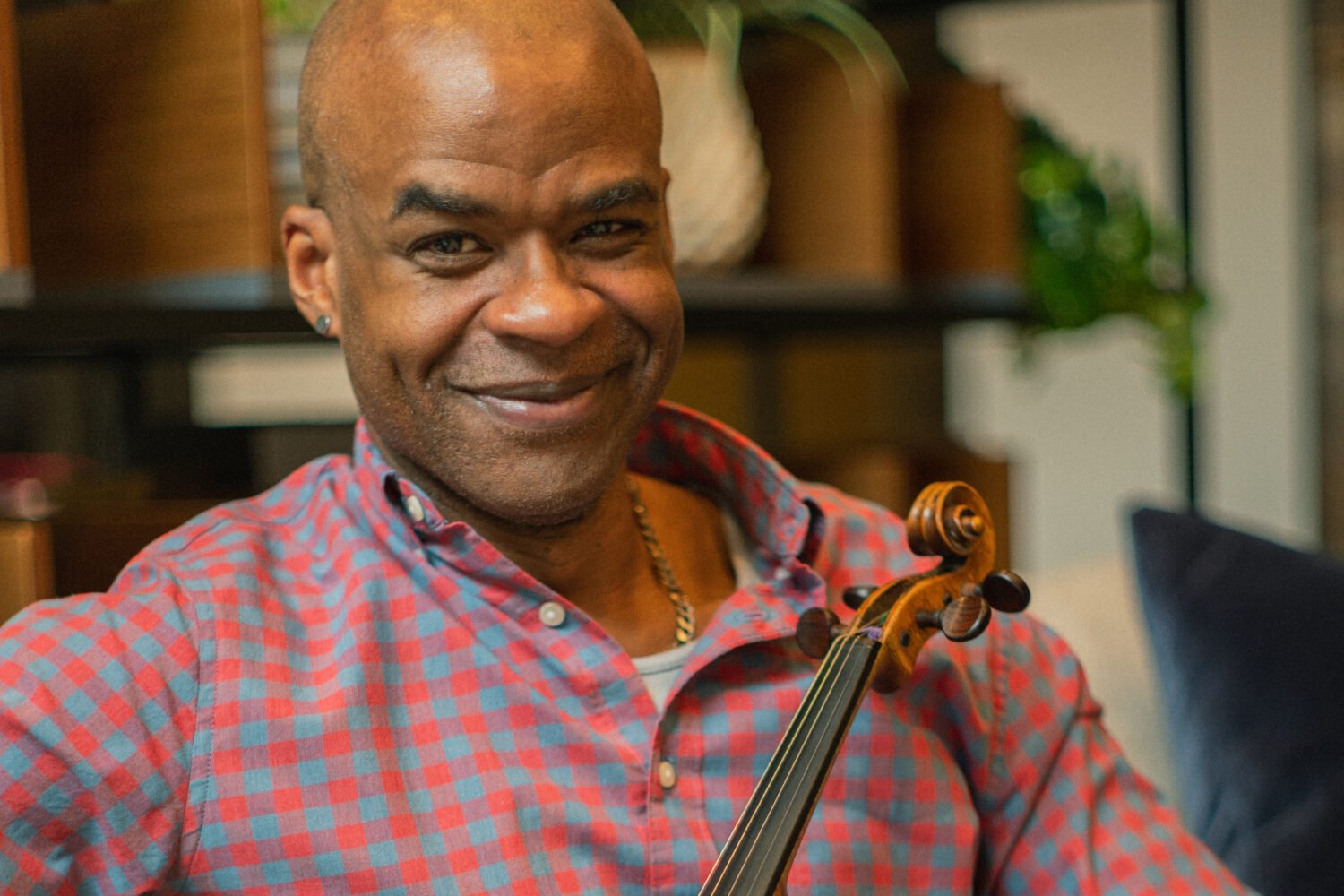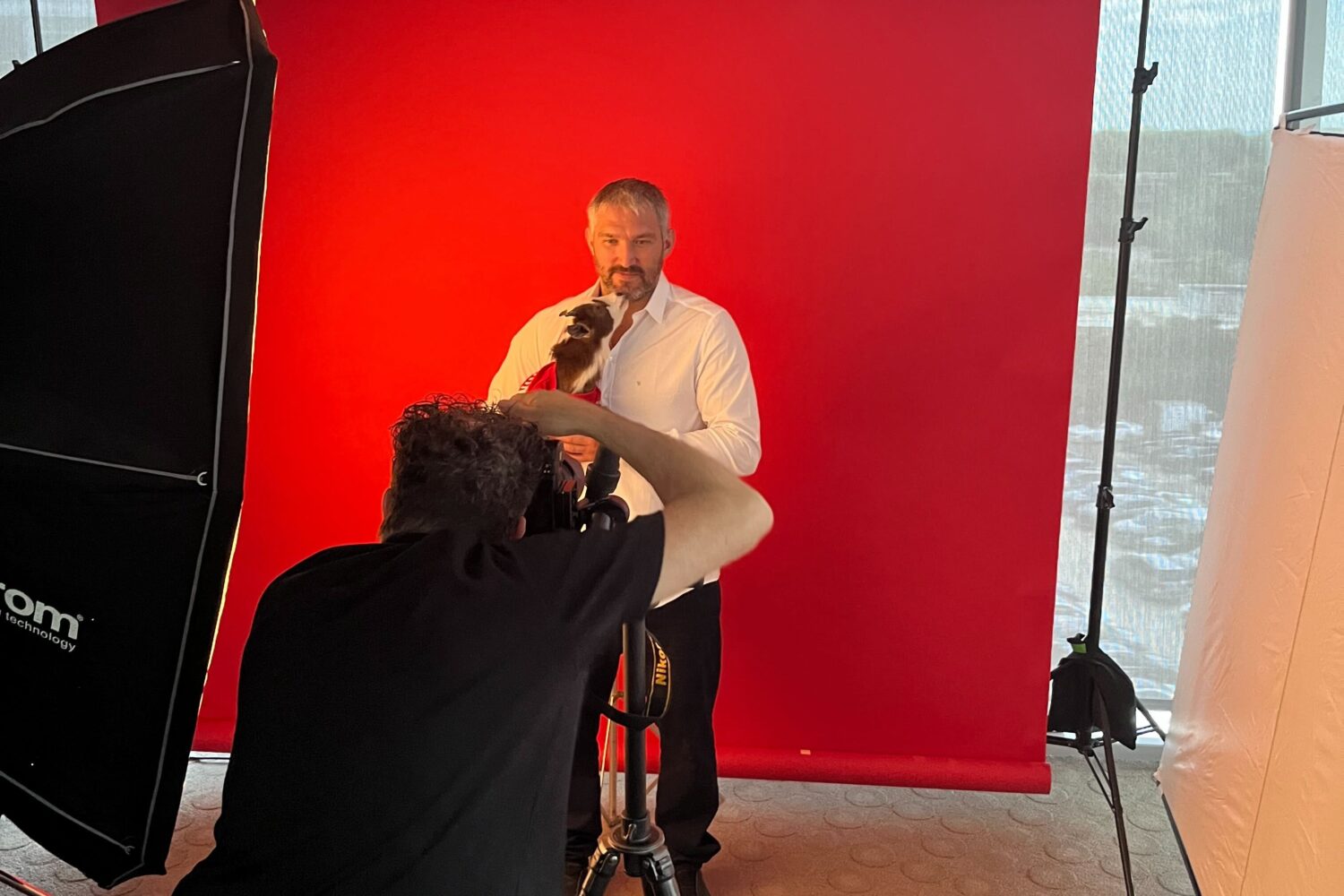Twenty-two years ago, my father sent a letter to me that I never had the courage to open. I put it away in a drawer, the envelope still sealed, thinking I might get around to it someday. I knew what was in there; I couldn’t bear to look.
My family’s Holocaust story wasn’t something I’d ever much engaged with. I knew the basics, dimly, but it all felt far away and abstract—somebody else’s nightmare. So when my father wrote up what he knew and sent it to me and my two siblings, I made the easier choice: to keep living in protective ignorance.
Then, in early 2020, a play called Leopoldstadt premiered in London. Written by Tom Stoppard, it was loosely inspired by the playwright’s own Holocaust history, and the story seemed remarkably similar to my family’s past: an assimilated Austrian Jewish clan is ripped out of its comfortable Viennese life by the arrival of the Nazis and, ultimately, destroyed. I read everything I saw about Leopoldstadt, especially as it moved to Broadway in 2022 and then won the Tony Award for Best Play. I was weirdly drawn to this story about a doomed family that wasn’t my own. Perhaps Leopoldstadt was a way to access my history without having to stare directly at it.
And yet I didn’t see the play. My father, for whom this history is far more personal and immediate, did attend a Broadway performance, and he found the experience to be moving and somewhat uncanny. He tried to convince me to go, but I never made it up there. I figured Leopoldstadt would eventually arrive in Washington. Maybe I’d see it then, I said. I wasn’t sure that was really true. As with the letter, it was easier to push it away.
Earlier this year, Shakespeare Theatre Company announced that a new production of Leopoldstadt would be opening here at the end of November. Directed by Carey Perloff and produced in association with the Huntington Theater Company in Boston, it’s the first staging of the play after the Broadway production closed. I’m not sure why, but this time something felt different. I decided I needed to stop hiding—from Leopoldstadt and from my family’s past. I bought a copy of the published play and read it. Then I pulled my dad’s letter out of the drawer.
My grandparents, Robert Brunner and Louise Koblitz, were deeply assimilated Viennese Jews during that pre-WWII period when the city—though racked by economic and political crises—was a center of cultural innovation, much of it driven by Jewish genius. More than 200,000 Jews lived in Vienna before 1938, and they weren’t merely tolerated—they were at the heart of the city’s intellectual life.
A couple not yet married, my grandparents were immersed in that thrilling swirl of culture and ideas. My grandfather owned a bookselling business, Robert Brunner Books. My grandmother had worked as an elementary-school teacher. Though they didn’t have a lot of money, they were non-religious, middle-class Austrians who felt at home in a sophisticated place that accepted them as its own. Vienna was their entire world.
The extended Merz family—the focus of Leopoldstadt—are similarly drawn to the cultural heat of that extraordinary moment. Their textile business has made them wealthy, but “we literally worship culture,” says Hermann, the patriarch.
That’s all eventually shattered, of course. Leopoldstadt follows the Merzes from 1899 through 1955—the good years, the terrifying collapse, and the aftermath. Some of the characters escape; most do not. The question of whether and when to leave haunts the play. “Things will calm down,” one character says. “No, things will get worse,” another replies. By the time most Jews realized they needed to flee, it was too late.
For my grandparents, leaving didn’t feel like much of a choice. My dad’s letter lays out an extraordinary story of luck and courage, an escape saga that began when my grandfather had the good fortune—if that’s the right way to put it—to get hauled in by the Gestapo.
It was 1938, not long after the Nazis annexed Austria, and my grandfather, who was involved with Socialist politics, knew the leaders of a banned leftist political party. The Gestapo believed, incorrectly, that he was one of them. He was interrogated and then temporarily released. In a panic, my grandparents confronted tough options: stay in Vienna and face the further attentions of the Nazis or flee into the unknown, with slim prospects for escape. They had no legal path out of the country; the Gestapo would likely consider him a fugitive.
My grandparents heard a rumor about a particular German government office on the French-German border that might let Jews cross in return for a bribe. It seemed like their best option—their only option. They almost made it there. If they had, they probably would have been arrested and sent to a camp.
My father wrote about what happened next:
“While they were on the trolley en route to the government office, they were approached by an ordinary ‘commercial’ smuggler, who correctly deduced their situation and plans. He warned them off of going to the Gestapo and offered to get them to Paris in exchange for some jewelry that my mother showed him. In a snap judgment, my parents opted to trust him.”
The smuggler hid them in a barn for a few days, then brought them to the edge of a field and told them France was on the other side. A French taxi would be waiting, he claimed. The story seemed highly unlikely—they were convinced they were headed to their deaths. But what could they do except believe him?

My family will never know who that smuggler was or what might have motivated him. He could have taken the jewelry and sent them to die. But he kept his word: The taxi was there. It took them off to Paris, where my grandparents would spend more than a year, trying to find a country that would take them. Finally, they received a phone call from the US Embassy: If they could get there by the end of the day, they could have two precious American refugee visas. The documents are dated August 31, 1939. The next day, Hitler invaded Poland and the war began. They were later told these were the last two refugee visas issued by the US government in Paris until the end of the war. My grandparents arrived in New York in early 1940, with $20 and no idea what lay ahead. Neither of them ever went back to Austria.
With a handful of exceptions, the rest of my grandparents’ family—my family—remained in Vienna. From their new home in New York, my grandparents tried everything to get them out. (Their desperate letters from this period are now in the collection of the United States Holocaust Memorial Museum.) But nothing worked. Their relatives were eventually sent to Poland, where, after who knows what horrors, they were murdered.
The same end awaits most of the Merzes. At the end of Leopoldstadt,characters speak the names and fates of various family members:
Ernst: Auschwitz.
Hanna: Auschwitz.
Kurt: Dachau.
Nineteen members of the Merz clan, most dead at the hands of the Nazis. The scene tends to leave audiences sobbing.
Leopoldstadt feels personal to me, but for Carey Perloff, the director of this new production, it actually is: Stoppard was partly inspired by her own family’s escape from Vienna in 1938, after a prescient relative pressed them to leave while they still could. “They believed him and went,” Perloff says. “I always think that was a miracle.”
Perloff, who grew up in DC, is a well-regarded theater director now based in San Francisco. She’s known Stoppard for more than 30 years and has directed a dozen of his plays. Perloff’s mother, Marjorie—a prominent poetry and culture critic who died this past March—was a child when her family fled Austria. Her strong memories of that time became a memoir, The Vienna Paradox. In 2018, when Stoppard was writing Leopoldstadt, he visited Marjorie in Los Angeles, where they spent a day talking about her life and her book.
Of course, Stoppard famously has his own Holocaust history and tale of escape. Raised in Czechoslovakia, he was a toddler when the Germans invaded in 1939. His family fled to Singapore, then India. Stoppard’s father was killed when the Japanese bombed a ship he was on. His mother then married an Englishman, and from the age of nine, Stoppard lived in the UK, never learning much about his past as a refugee. It wasn’t until the early 1990s, when he had coffee with a relative he’d never before met, that he learned the full story. He hadn’t even really known he was Jewish.
“While my mother was alive, she discouraged looking back at family history,” Stoppard told me in an email. “But I think the main impetus for writing Leopoldstadt was more to do with my habit of referring to my own ‘charmed life.’ I found myself transformed into a little English schoolboy, and I never looked back. I suppose you could say that I began to feel bad about not looking back, and in the end the result was a play called Leopoldstadt, which of course was not my story at all, because we were not Viennese Jews and my family was lucky to . . . [get] out of harm’s way.”
Leopoldstadt both is and isn’t Stoppard’s attempt to grapple with that past. There are parts of the play that speak to his own story, yet Stoppard says he was trying to capture something broader. “Because my mother did not like looking back, and I had no special urge to unpack her story until it was too late, I missed my chance to have the conversations which no doubt would have added some facets to the story I was trying to tell,” he says. “Writing a play is not like writing a memoir or anything else. Drama has a special dynamic which playwrights are trying to exploit. In the end, I was helped by treating the family as a fiction.”
But for descendants like me, it all feels very real—the first time I’ve seen the world that was taken from my forbears brought to life. “It’s a completely invented story that is very close to your family history and my family history and many, many people’s family history,” Perloff told me. “The ghosts of my family are everywhere in the play. And I think the ghosts of Stoppard’s family are also.”
The Nazis stole everything from my grandparents—their relatives, their friends, their entire world. They also took something less tangible: their Austrian citizenship. During the pandemic, I decided to get it back.
The Austrian government now offers citizenship to descendants of people who lost it due to Nazi persecution, and over the past few years, thousands have taken them up on it. My dad and I filled out the paperwork together. It was easy to prove our claim; among other things, my father has plenty of old government documents with my grandparents’ names on them, some bearing truly chilling ink stamps with swastikas.
The approval process went pretty quickly, and in November 2021, I received a certificate declaring my new nationality. I’m officially Austrian now, a dual citizen. The burgundy EU passport sits on my dresser, both a minor point of pride and a potential exit strategy during an era of fear and uncertainty in the country where I live.
Yet by accepting the government’s effort to make amends with my family, I’m not sure what I’m really signing up for. I’m literally only Austrian on paper; I don’t speak German, and I’ve been to Vienna just once, many years ago. As a foreigner and a Jew, I’m certain I would be seen by many as an outsider. And I struggle with an unsettling question: By tying myself to a country that was complicit in the murder of my family, am I signaling a forgiveness that I’m not sure I’m ready to confer? Or am I simply getting back something that was, in a real sense, taken from me?
Not long ago, I went with my dad to an event here in DC, at the Austrian ambassador’s residence, for people who had recently become citizens under the program. The hosts were warm and welcoming; they said the right things about accountability and the ongoing need to fight antisemitism. But I knew I didn’t really belong. Standing there amid all these actual Austrians chattering away in their native language, my dual citizenship felt fragile, even false.
There’s a moment in Leopoldstadt that haunts me, a harrowing scene in which a Nazi shows up at the Merz apartment and informs them, in the most dehumanizing and contemptuous terms, that he’s taking their home. “Did you think you were Austrians, you old parasite bitch?” he spits at one member of the family. In the play, the Merzes certainly did think that. My family believed it, too. But citizenship—Austrianness—didn’t save them. In the end, it didn’t mean a thing.
Near the end of my father’s letter, he mentions my grandmother’s three young cousins, Erika, Heinz, and Felix. The siblings were just eight, six, and three years old when, in 1942, they and their parents—my grandmother’s older brother, Rudolf, and his wife, Sima—were sent to Wlodawa, Poland. Soon after, they were all killed. It’s not clear whether they were taken to the nearby Sobibor extermination camp or simply brought out to a field and shot.
Their deaths hit my grandmother particularly hard, I knew, but the specifics of this history weren’t discussed in my family—certainly not by my deeply scarred grandmother, who lived in Bethesda for most of my childhood and was a frequent but ghostly presence in my life. (My grandfather, whom I’m named after, died before I was born.) Most of her family and friends had been murdered. She was tormented by survivors’ guilt. She didn’t want to burden me and my siblings with things that were too awful to face. She told my father it was all too “boring” to talk about.
But I also never asked. It seemed too big, too horrible. None of it felt like it belonged to me. That was a delusion that I held onto for too long. “I do perceive my three children as carrying on in some sense for their three cousins who were roughly 35 years older,” my dad writes in the letter. I didn’t have any idea he thought about it that way—I’d never bothered to learn much about them or consider the parallels to my own life. But had the cousins survived, they would have been my family, my son’s family. They would have come over for Thanksgiving dinner; I might have been friends with their children. Their loss isn’t some abstraction, I have finally come to realize. It’s my loss, too.
In Leopoldstadt, Stoppard wrestles with his own alienation from his Holocaust story. He was eight when his family fled, the same age as my cousin Erika when she was deported and killed, just a year older than Marjorie Perloff when she escaped. Toward the end of the play, some characters who survived meet up in Vienna, where one confronts Leo, an obvious stand-in for Stoppard, about how he avoids his past. “No one is born eight years old,” he tells Leo. “But you live as if without history, as if you throw no shadow behind you.”
I, too, have always avoided my history. But I don’t feel able to look away anymore. It will be on my mind when I go see Leopoldstadt at the Shakespeare in December. At the end, as they read off the names and fates of all the characters, I expect to be in tears along with everyone else. But in my head, I’ll be hearing the names of my own dead relatives:
Agathe Koblitz
Rudolf Koblitz
Hermine Brunner
The full list would go on and on, a procession of Brunners and Koblitzes who—like the fictional Merzes—were sent to their deaths only because they were Austrians who happened to be Jewish. Their names are now inscribed on Vienna’s Shoah Wall of Names Memorial. They’re my grandparents’ siblings and parents, their uncles and aunts, their nieces and nephews and cousins. These people I never met aren’t actually strangers, I now understand. They belong to me. They’re my family. My identity. My shadow.
This article appears in the December 2024 issue of Washingtonian.


















